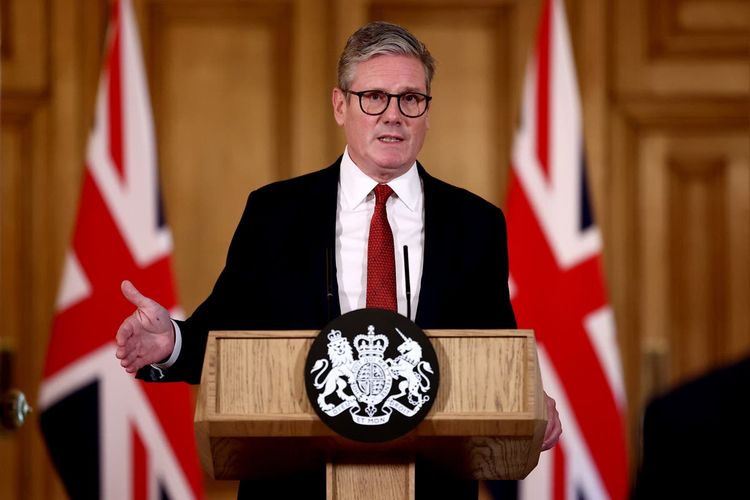Keir Starmer versus the mob: he is not a lefty human rights lawyer after all

The attempt by Conservatives to criticize Keir Starmer for being a typical north London lawyer focused on human rights did not gain much traction. Boris Johnson kicked off the attack by referring to Starmer as a "left-wing lawyer from Islington," even though Johnson himself has lived in the area for many years. Rishi Sunak also joined in the criticism, but it didn't seem as genuine coming from him.
However, it was unsuccessful because Starmer does not strongly support human rights. While he claims that Britain will always uphold the European Convention of Human Rights to show EU leaders that he is a loyal European, he does not appear to be very focused on the actual rights included in the convention.
On Thursday, he revealed plans for increased enforcement against crime and violence, including expanding the use of facial recognition technology. This announcement may not have received a warm reception from lawyers at Doughty Street chambers in north London. They are typically concerned about the potential infringement on civil liberties posed by increased surveillance and the risks of racial discrimination.
During a big event on Twitter, Tommy Robinson, who is against immigration, complained that the prime minister was introducing facial recognition technology.
Certainly, there has been a long-standing confusion surrounding the differences between civil liberties on the left and right. The Conservatives only began to gain an advantage over Tony Blair when they aligned themselves with Shami Chakrabarti, the director of Liberty and a well-respected human rights lawyer who resided in south London. Together, they opposed Labour's proposal for the 90-day detention of terrorist suspects.
Starmer appears to have a similar attitude to Blair when it comes to issues that concern human rights lawyers. It was noticeable that Shabana Mahmood, the new justice secretary, recently introduced a ban on prisoners serving life sentences from getting married. This decision was made after Levi Bellfield, a serial killer imprisoned for the murder of Milly Dowler, attempted to marry while in prison. Mahmood implemented a provision of the Victims and Prisoners Act 2024, which was originally introduced by Dominic Raab during his time as justice secretary last year.
However, this situation may be considered by a human rights attorney as going against the European Convention on Human Rights, specifically article 12 which states the right to marry. This ban is reminiscent of the ongoing disagreement between the UK government and the Strasbourg court regarding the voting rights of prisoners. This allowed David Cameron to appear as though he was challenging the European court in order to appear strict on criminals. Starmer and Mahmood may also see this as an opportunity to take a similar stance on the right of serial killers to marry.
Starmer needs to prove that he is strict on crime. He and police leaders are concerned about the hot weather - often a more significant factor in public unrest than alleged political grievances. Specifically, he cannot allow the violent unrest in Southport, Hartlepool, and London this week to create the impression, carefully cultivated by Nigel Farage, that "law and order in our streets is deteriorating." It's interesting that it's Hartlepool once again - the area is a measure of Starmer's leadership. When Labour lost the by-election there in 2021, Starmer admits he nearly quit. Now that it's a Labour stronghold again, Starmer is determined to keep it that way.
Starmer needs to ensure fairness in how the police handle all criminals, regardless of their political beliefs. Farage is suggesting that the prime minister is unfairly blaming "far-right thugs" for recent violence, implying that the police may have treated different groups unequally. It's important for Starmer to tackle this issue and ensure that all criminals are treated equally, regardless of their background or beliefs.
The statement is confusing, but it is likely that Farage would support actions to assist the police in upholding the law, even if it means restricting the civil rights of Tommy Robinson's followers - who Farage claims are not associated with him.
If Starmer isn't actually the stereotypical progressive lawyer from northern London, you might think that Farage would back him. However, this is not the case. Still, Starmer's decision not to be pigeonholed as a liberal activist does make it harder for the leader of Reform UK to capitalize on disruptive situations.









































